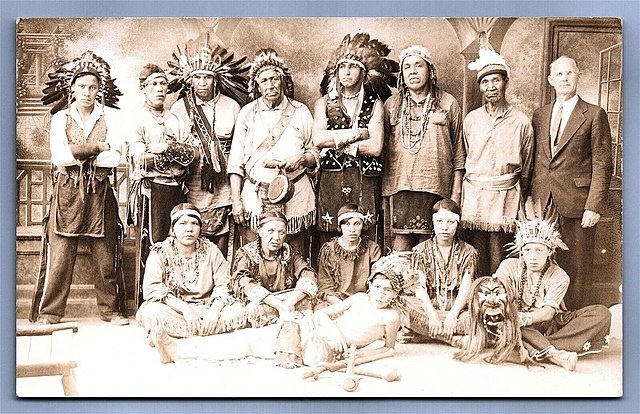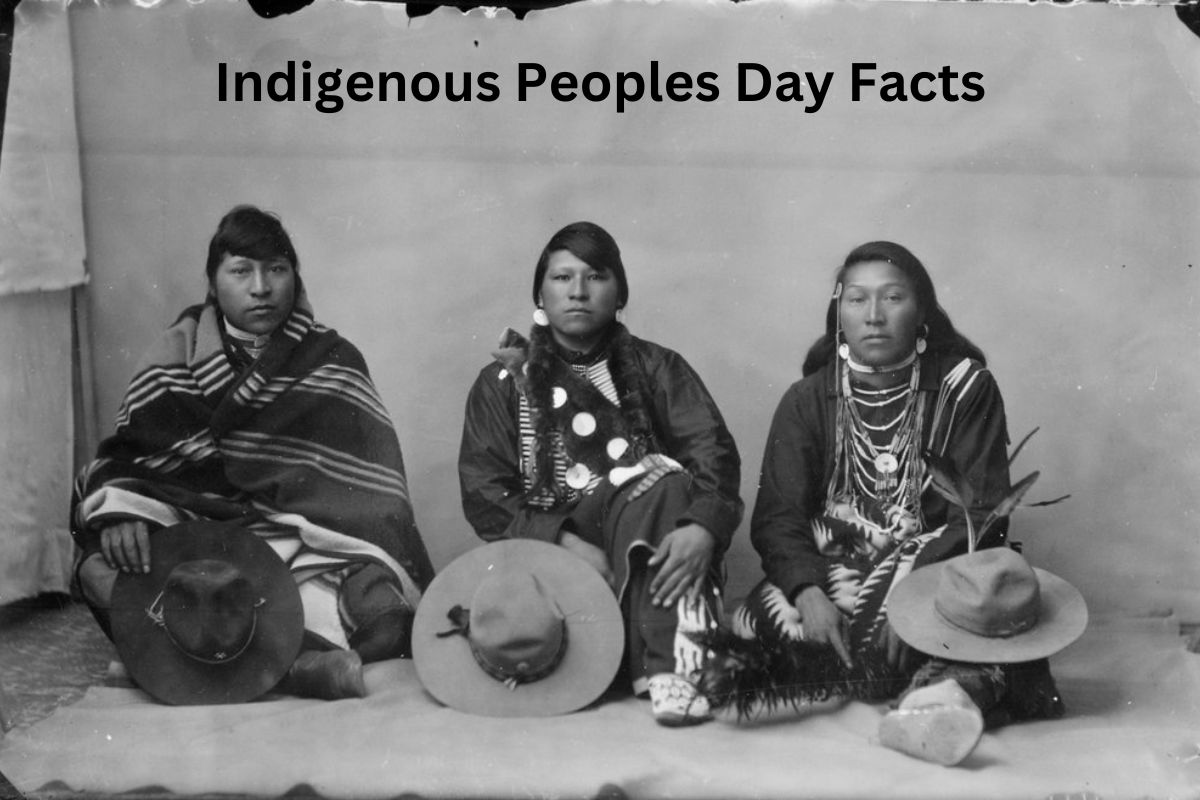Indigenous Peoples Day is an annual holiday celebrated on the second Monday of October in the United States. The holiday aims to honor and acknowledge the rich cultures, histories, and contributions of Indigenous peoples who have inhabited the Americas for thousands of years.
It was first proposed in 1977 as an alternative to Columbus Day, shifting the focus away from Christopher Columbus and European colonization towards recognizing and celebrating the Indigenous populations.
Since its inception, Indigenous Peoples Day has gained traction, with many cities and states adopting the holiday and organizing various events and activities to promote awareness, reconciliation, and understanding.
Facts About Indigenous Peoples Day
1. Indigenous Peoples Day is celebrated on the second Monday of October in the United States
Indigenous Peoples Day is celebrated on the second Monday of October in the United States. It is a day dedicated to recognizing and honoring the diverse cultures, histories, and contributions of Indigenous peoples.
The holiday serves as a way to shift the narrative away from Christopher Columbus and instead focus on the resilience, heritage, and ongoing struggles of Indigenous communities.

2. The holiday was first proposed in 1977
The concept of Indigenous Peoples Day was first proposed in 1977 during the International Conference on Discrimination Against Indigenous Populations in the Americas.
A delegation of Native nations suggested replacing Columbus Day, which had been observed since 1937, with a holiday that acknowledges and celebrates the Indigenous peoples who were already living in the Americas when Columbus arrived.
3. The idea behind Indigenous Peoples Day is to shift the focus from Christopher Columbus
The intention behind Indigenous Peoples Day is to highlight the rich and vibrant cultures, traditions, and knowledge systems of Indigenous communities.
By shifting the focus away from Columbus and European colonization, the holiday aims to challenge the historical narrative that often marginalized or ignored the contributions and experiences of Indigenous peoples.
It provides an opportunity to educate the public about the diverse Indigenous cultures and histories that have shaped the Americas for thousands of years.
4. The first official Indigenous Peoples Day was celebrated in 1992 in Berkeley, California
The first official celebration of Indigenous Peoples Day took place in 1992 in Berkeley, California. The city’s council declared October 12th as a “Day of Solidarity with Indigenous People” to coincide with the 500th anniversary of Columbus’s arrival in the Americas.
Since then, the movement to recognize Indigenous Peoples Day has gained momentum across the United States, with numerous cities and states adopting the holiday and replacing Columbus Day.

5. Indigenous Peoples Day is not only celebrated in the United States but also in other countries
The observance of Indigenous Peoples Day extends beyond the United States. In Canada, National Indigenous Peoples Day is celebrated on June 21st to honor the diverse cultures and heritage of Indigenous peoples.
Similarly, Brazil commemorates the National Day of the Indigenous People on April 19th, recognizing and promoting the rights and cultures of its Indigenous populations.
6. Indigenous Peoples Day is an opportunity to promote awareness of the ongoing struggles faced by Indigenous communities
Indigenous Peoples Day serves as a platform to raise awareness about the ongoing struggles faced by Indigenous communities. It sheds light on issues such as land rights, cultural preservation, social justice, and the impacts of historical trauma and colonization.
Through public events, educational initiatives, and advocacy efforts, the holiday provides an opportunity to address these challenges and promote dialogue between Indigenous and non-Indigenous communities, fostering understanding, reconciliation, and positive change.
It serves as a reminder that the histories and experiences of Indigenous peoples should be acknowledged, respected, and valued.
7. The holiday is marked by various events
Indigenous Peoples Day is marked by a wide range of events and activities that celebrate Indigenous cultures and raise awareness about their contributions.
Cultural performances such as traditional dances, music, and storytelling are organized to showcase the richness and diversity of Indigenous traditions.
Art exhibitions featuring Indigenous artists’ works often take place, providing an opportunity to appreciate their creativity and unique perspectives. Additionally, traditional ceremonies and rituals may be held, allowing participants to witness and learn about Indigenous spiritual practices.
8. Indigenous Peoples Day is recognized as a time for reconciliation and healing
Indigenous Peoples Day is seen as a time for reconciliation and healing. It prompts individuals and communities to acknowledge the historical injustices that Indigenous peoples have endured, including forced displacement, cultural assimilation, and systemic discrimination.
The holiday encourages dialogue and understanding between Indigenous and non-Indigenous communities, promoting empathy, respect, and collaboration. It serves as a platform for addressing contemporary issues faced by Indigenous peoples and working towards a more equitable and inclusive society.
9. Many educational institutions have begun incorporating Indigenous history and culture into their curriculum
Educational institutions are increasingly incorporating Indigenous history, culture, and perspectives into their curricula. This shift aims to provide a more accurate and comprehensive understanding of the contributions and experiences of Indigenous peoples throughout history.
By including Indigenous knowledge systems, traditional practices, and contemporary issues, schools and universities foster cultural awareness, respect, and appreciation among students.
This educational aspect of Indigenous Peoples Day helps to counter misconceptions and stereotypes, promoting a more inclusive and holistic approach to learning.
10. Indigenous Peoples Day has sparked debates and discussions around the country
Indigenous Peoples Day has sparked debates and discussions across the United States. Some argue that the holiday should not replace Columbus Day but be observed alongside it, as a way to recognize multiple perspectives and histories.
Others believe that completely replacing Columbus Day is necessary to challenge the glorification of colonization and honor the Indigenous populations who suffered as a result. These debates reflect broader conversations about the importance of decolonization, historical accuracy, and the ongoing struggles for Indigenous rights and sovereignty.
Indigenous Peoples Day serves as a catalyst for these discussions, encouraging critical thinking and dialogue about the legacy of colonialism and the path towards a more just and inclusive society.
